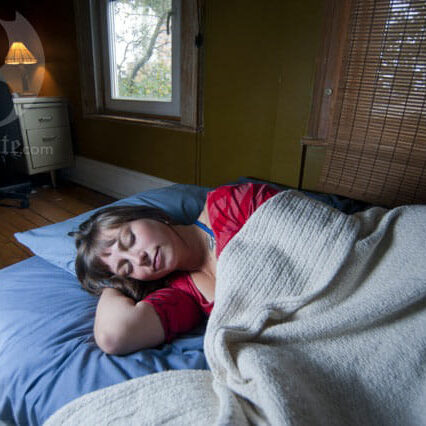
Sleep: Taming the elusive beast
“My sleep schedule has become very irregular due to my studies. Is this bad for my overall health? Is there any way I can compensate for my lack of sleep?” – Sleepy Jean Looking for a Cheer Up
The quick and simple answer to your questions are that, yes, irregular sleep does not help your overall well-being and, no, there is no way to compensate. Our bodies need sleep. Period.
We know that sometimes, as a student, irregular sleep patterns are unavoidable. We seem programmed to wait until the last minute on each and every deadline beyond the first two weeks of school when we are all still keeners. As a result, you see many students – myself included –guzzling back coffee or energy drinks in the library late at night.
As a rule, I don’t typically cite research in this column because I know many of you get enough academic drivel in the classroom and don’t want to read it here. I have done some digging on this topic, however, and have discovered some consistent findings related to a good sleep and its negative effects: depression, mental health, academic achievement, concentration, mood and physical health, among others. It’s information we have all heard before.
It seems every week or so, a newspaper details a study demonstrating the importance of sleep. So much so, we have maybe become immune to the idea, still wondering why we are always so tired or lacking energy. It’s the same immunity we have to the suggestion that exercise and healthy eating is the sole answer to achieving a healthy body weight.
Similar to exercise and healthy eating, we are constantly being marketed easy, no effort solutions to our sleeping deficiencies. Newer and more powerful energy drinks are coming out all the time. I went to a convenience store in Ontario recently and counted 20 different brands of energy drinks being offered. Lack of sleep is big business.
The problem is our bodies become immune to caffeine (and dependent on it at the same time). Ever notice how those two to three cups of coffee you chug each day just never have the same kick as the first brew you had many years ago? That’s why we keep trying to find something stronger, newer and better to get our bodies moving again. We get it one day here or there, but supplementing sleep on a regular basis with caffeine is not going to produce a win in the long run for your body or mind.
So, what can you do to start sleeping well again?
For starters, if you don’t have a regular sleeping cycle, sit down and ask yourself why. Our bodies are fickle little things and don’t always do exactly what we want them to do, sleep included. If you don’t already have a regular sleep schedule, you can’t expect to close your eyes one night and be granted a wish.
The most common complaint is that you just aren’t tired at night. Well, perhaps there is a reason for this. Ingesting caffeine too late (I can’t have any past 5 p.m. or it keeps me awake), naps throughout the day, not enough activity, as well as stress and anxiety can all contribute to reinforcing negative sleep patterns.
Once you know what some of your barriers are, you can start tackling them and slowly bringing your sleeping patterns under control. The sooner you do, the better you will feel. You will be more likely to get those workouts in, eat healthy and be a much more productive person overall.
As for those deadlines, a regular sleep pattern may just help you regain some of the keenness that escaped you somewhere in mid-September.
Send your fitness-related questions to cghebb@dal.ca and check back in the Gazette weekly to see if your question gets answered.







